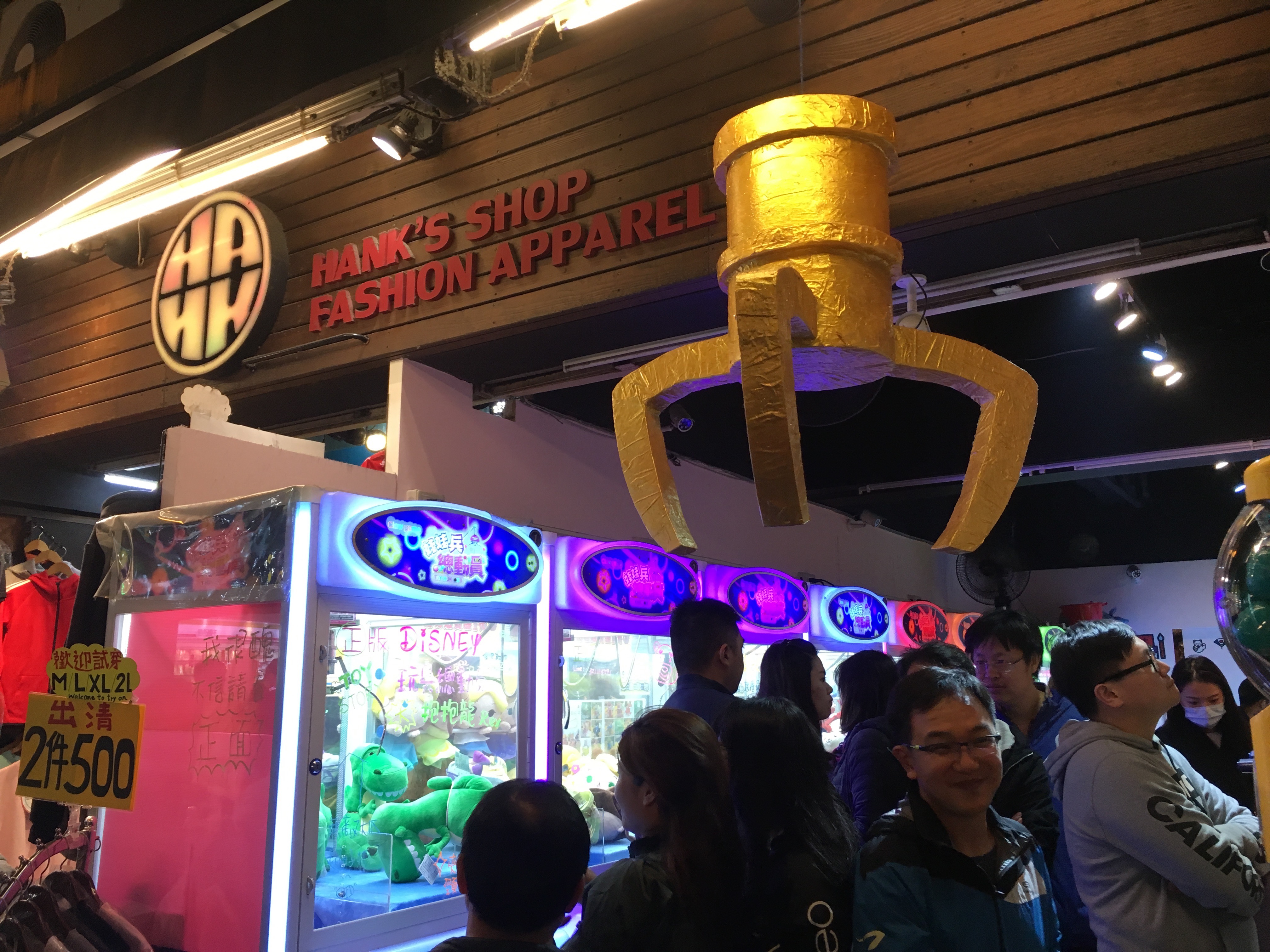I’m not sure when it began. Maybe it began the day I found myself wondering when it had first begun: “Since when have there been so many crane-claw machines?”
They were taking over Taiwan: storefronts with nothing in them but crane-claw machines, open 24/7, but with no staff. I would find myself wondering what had been there before. Sometimes I could name the bar or store I used to go to, somewhere I ate once or bought something in. Most of the time, I couldn’t remember.
I live by a night market where stores are always going out of business and leaving behind empty storefronts. That seemed normal. Taipei is constantly in motion, constantly being torn up and replaced, too vast for any singular individual to grasp. There is nothing unusual about walking home on your commute and seeing some building you never noticed before. “Is that new? Was that always there?” It seems normal for all that is solid to melt into air, almost reassuring.
But if you live in a city long enough, in any city, it starts to feel repetitive. The same repetitive elements seem to reappear, over and over, in a randomly generated combination, the way an open-universe computer games re-uses and combines the same elements, over and over. In Taiwan, one name for this repetition is “convenience.” I’ve seen up to four convenience stores on a single block before, on each of four corners. You can buy food, drinks, coffee, alcohol, everyday consumables, clothes, get deliveries, get things printed, pay your electric and water bill, pay fines, order movie, concert, or train tickets, or even get your laundry done at these. There’s also free wi-fi and seating. You can do so many things at a 7-Eleven that “luxury automated communism” in Taiwan would consist of simply appropriating them all for free, public use.
There doesn’t seem to be as much of a social need for crane-claw machines, of course; along with the usual toys, baubles, and stuffed animals, you can find also hentai figures, Donald Trump keychains, DVDs about horoscopes, instant noodles, packages for tissues, baseball caps for auto repair workers. A crane-claw machine store put scantily clad models inside their crane-claw machines for a publicity stunt; a friend of mine found a crane-claw machine with the claw of a smaller crane-claw machine as a prize inside.
All the same, through the day and at night, you can see people of all backgrounds digging for treasure in crane-claw machines: salarymen and women, parents and their children, high school students on lunch breaks or when school got out in the afternoon. And then, there are couples on dates, construction workers on late night shifts, drunks, and other drifters through the night. In The Great Buddha+—a dark comedy that almost won the top honor at the Golden Horse Film Festival last year—the main character is a homeless man addicted to playing crane-claw machine games.
Lawmakers and politicians have become concerned that young people are too fixated on crane claw machines, that it’s a new form of addiction. According to some reports, a shop owner could make 150,000 NT per month (just over $5,000) from thirty machines, after recouping back one’s investment within a year. A university graduate’s starting monthly salary in Taiwan is around 22,000 NT.
In a way, crane-claws are the new coffee shop In recent years, it has been a joke that Taiwan was becoming overcrowded with coffee shops; young people opened coffee shop after coffee shop at a time when economic conditions were too poor to take risks on new ideas. Opening a coffee shop, then, seemed like one of the few profitable ways of opening a business (though some suspect crane-claw machines are also a means of money laundering).
Taiwan might be particularly fad-driven: we’ve seen waves of storefronts for bubble tea, hot pot, egg tarts…the list goes on. And the owners of the crane-claw storefronts sometimes put a lot of effort into it: I saw British-themed, zebra-themed, temple-themed, and hip hop-themed storefronts, among others. I saw crane-claw machines shaped like toy boxes and telephone booths, with flashing lights in all manners of bright colors. An entire two-story building of nothing but crane-claw machines opened up in my neighborhood. A friend sent me a link for a crane-claw sales group on Facebook, which had over 100,000 members. You could start a small city with the people interested in starting crane-claw machine stores! There’s even a music video set in dystopian cyberpunk Taiwan in which crane-claw machines have taken over as the AI-empowered rulers of society, set to bland Taiwanese hip hop.
With more and more storefronts emptying out and being replaced with crane-claw machines, perhaps Taiwan should embrace its destiny and become an island of crane-claw machines. Perhaps they will simply rid the country of convenience stores altogether; perhaps, along with instant noodles and tissues, they will start putting all consumer goods in crane claw machines. What if everyday essentials—toilet paper, tampons, water— were available nowhere else, and you would have to win them from the machine? Taiwan would become a Mad Max wasteland in which you had to live by your skill at crane-claw machine games or die.
That already sounds a bit like how things already are, I suppose. Sink or swim. Make money or starve. There is no option but to play the game. We already live on a ghost island of crane-claw machines. Why not burn ghost money in front of them, as businesses do in Taiwan? Maybe this is already being done.






